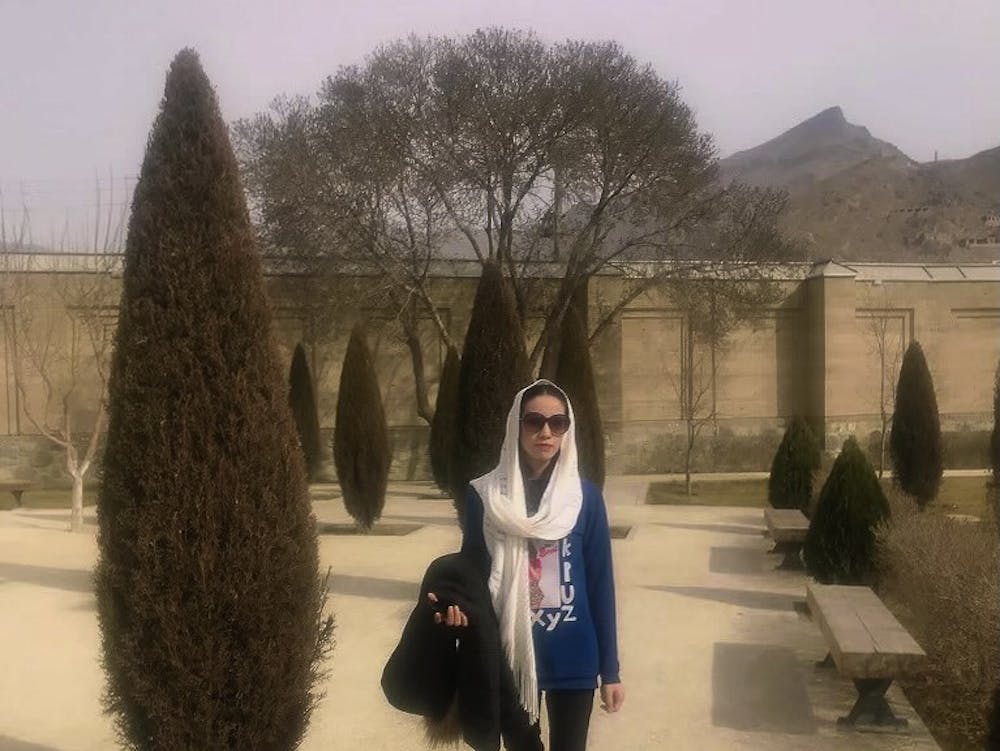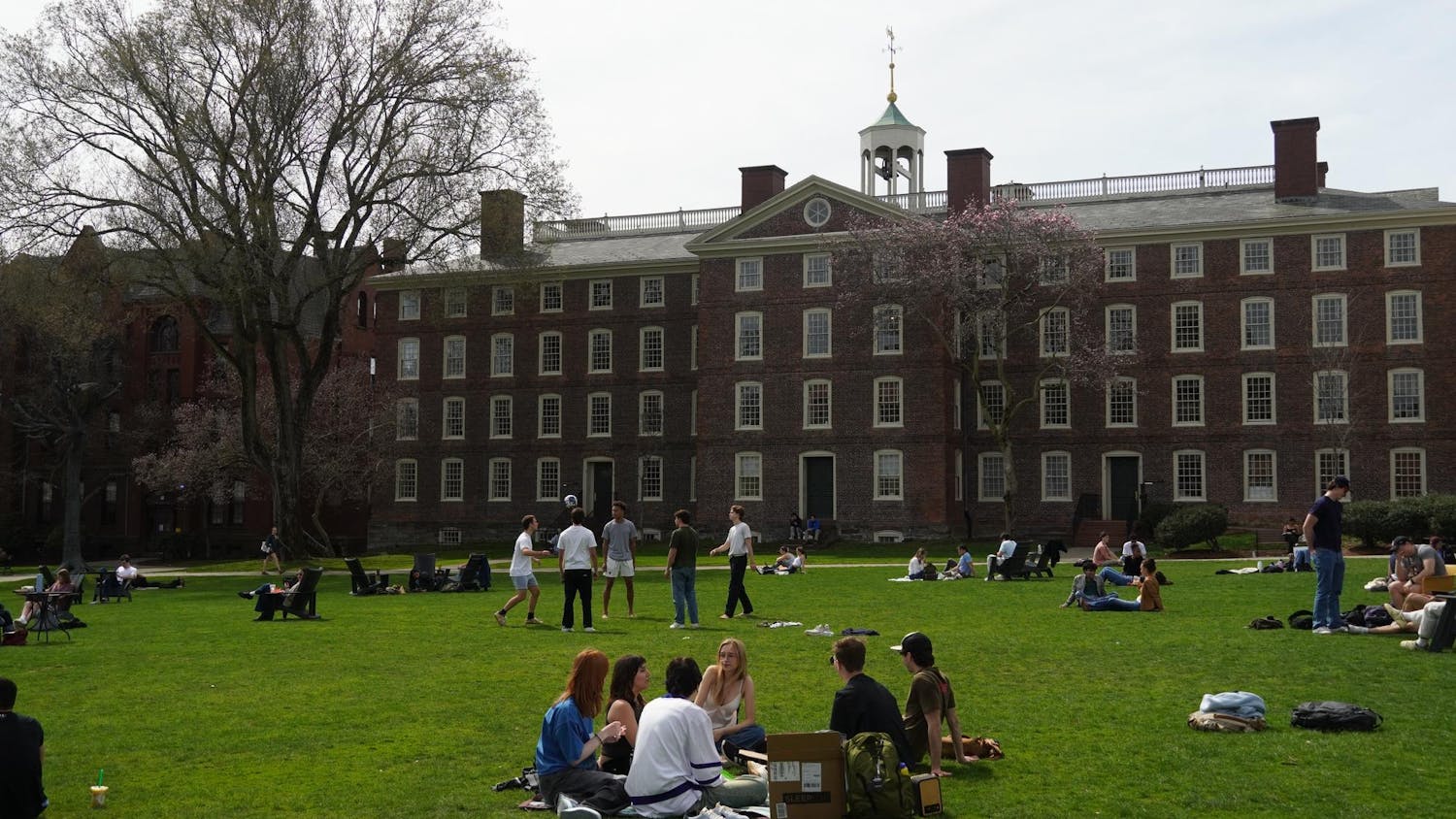A rickety transport bus rolled to a fence’s edge at Kabul’s Hamid Karzai International Airport. Its creaking metal frame bore the scars of bullet holes, gashes inflicted just hours earlier by soldiers determined to halt the bus’s journey. But the bus moved on, churning up a cloud of dust in its wake as it inched toward a stop outside the airport’s gates in the darkness of a desert night.
In the rows of seats behind the driver, 148 women crouched on the floor, covering themselves with hijabs and scarves to hide from the Taliban soldiers who did not want them to leave the country. Two of these women, Sima Raha and Zahra Fayeq, recall the sound of horrified screams as they hid on the bus.
“Turn off your mobile phones,” they remembered the driver whispering to the silent passengers. “We cannot have any light.”
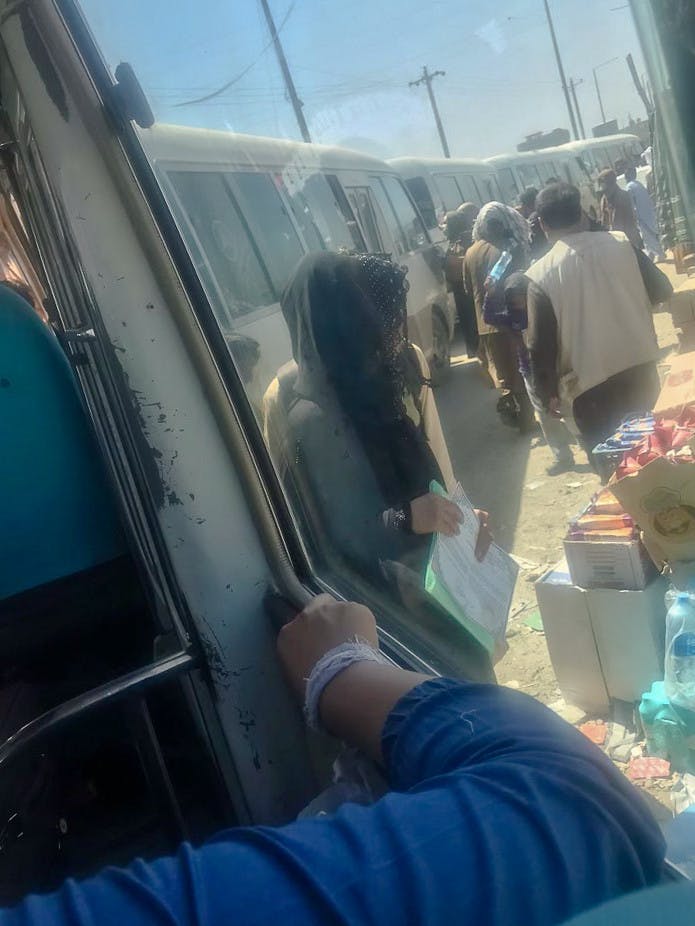
As the group waited on the bus through the night, the fence shook from two explosions whose flames destroyed an entire airport terminal.
Raha and Fayeq are among the 14 refugee students from the Asian University for Women who have been admitted to study at Brown by special permission of Provost Richard Locke P’18, The Herald previously reported. As a member of the New University in Exile Consortium, the University has partnered with AUW, an international university headquartered in Chittagong, Bangladesh, to give the students a new academic home.
Raha is a social advocate from Afghanistan’s Bamiyan province. Before the Taliban takeover on Aug. 15, 2021, she worked with the International Association of Students in Economics and Business, promoting female empowerment and rural development.
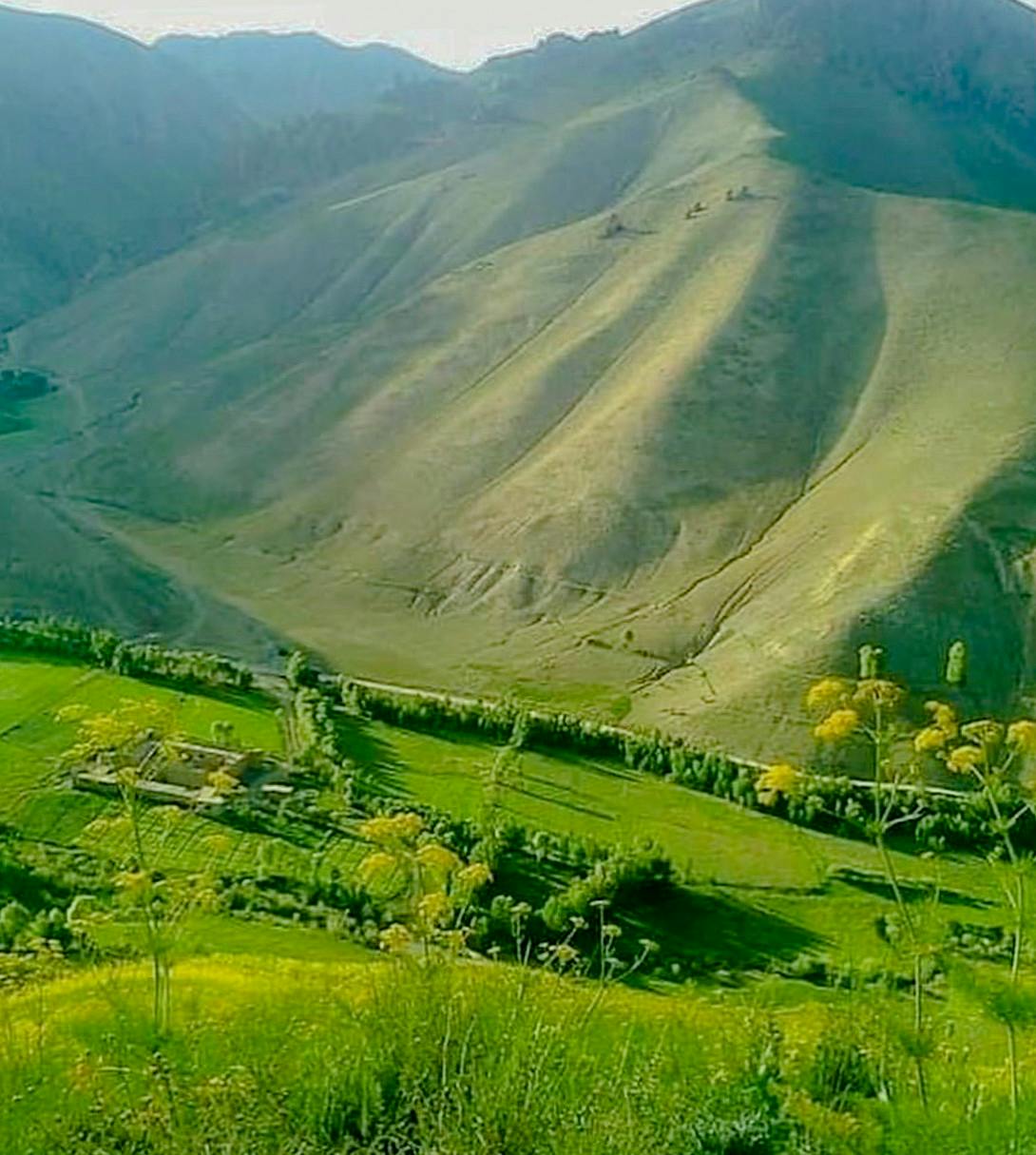
Fayeq studied at the top of her class in her hometown of Ghazni and spent her time advocating for social reform, specifically to alleviate challenges facing women. Both women were students studying remotely at AUW.
Fayeq and Raha characterized their lives in Afghanistan before the Taliban’s takeover as “normal,” but they had grown used to threats such as frequent explosions and acts of violence in mosques, educational centers, wedding halls and schools.
Despite looming fears over this lack of security, women could go for walks, get ice cream and fresh juice, go shopping and take selfies with friends, Raha said.
“We were studying, doing online classes, going to offices and work,” Fayeq added. At that time, “women had freedom and choice of what to do.”
In summer 2021, the two women began hearing reports of increasing Taliban activity. What were initially stories of insurgents taking isolated towns and cities turned into Taliban forces conquering entire provinces.
“I was hopeful that they would not take over Kabul,” Raha said. “As the capital, it will not collapse,” she recalled thinking.
But in early August, everything changed. Raha and Fayeq received urgent calls from AUW’s administration, which was frantically working to evacuate its students from Afghanistan. On Aug. 14, Raha, Fayeq and 146 other students were told to be ready to leave the country in 48 hours on a Zoom call with the university’s founder, Kamal Ahmad.
Raha recalled going outside that day and seeing droves of people running through the streets, scrambling to prepare themselves for the Taliban’s imminent arrival.
Fears raced through Raha’s mind. “What if I can’t go to university because the Taliban are in control?” she recalled thinking. She found herself huddled in a corner of her bedroom, terrified of what would happen next.
“It was difficult to sleep,” she said. “I (couldn’t) even imagine what (was) happening. Every night, I closed my eyes and had nightmares of the Taliban running after me.”
The next day, Aug. 15, Kabul was officially Taliban territory.
“There was no (longer a) world for women,” Raha said. Kabul was not its former self — a vibrant city where one could see schoolchildren on afternoon walks and hear the sounds of Afghan music, Raha added.
When the Taliban arrived and constructed a new government, they “brought a new culture for women,” Raha said. Afghan women were no longer allowed to travel freely without a male guardian, or “marram,” and had to be completely covered in a full-body black hijab.
This is not characteristic of traditional Afghan society, Raha said.
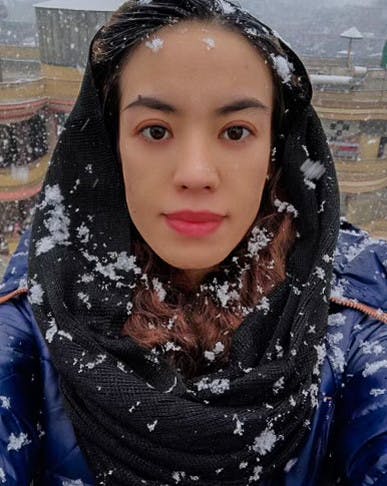
Taliban checkpoints guarded all major roadways and restricted people’s — especially women’s — ability to travel, Raha said.
Raha said it was a risky situation, and when she realized she would not be able to continue her education, “All my dreams collapsed and shattered,” she said. “I was just thinking (about how) to save my life.”
At 5:00 a.m. Aug. 28, the 148 women gathered outside of a Kabul supermarket. They hoped to catch a bus to the airport, where they could secure seats on an international flight to safety. But when the Taliban got word of the large gathering, the women were forced to return home due to safety concerns.
The next day, the women tried again, splitting into seven groups and successfully evading the Taliban’s notice as they boarded pre-coordinated buses. They drove to the airport terminal, spending that night in the buses.
The women went from terminal to terminal the next day, desperately hoping to find a flight to safety. Upon hearing that the women were university students, the Taliban shot at their buses, hoping to intimidate the drivers into turning back.
“My life matters. I have children,” Raha recalled a driver saying as he sped away from the airport and back into the heart of Kabul.
The women had returned to square one.
“All of us had a life, had families. But if we stayed, we (would) not … We were exhausted,” Raha said. “Some of the girls gave up and said (they wanted) to spend the last moments of (their) lives with family.”
When she arrived back home that night, Raha sat quietly with her siblings. She had to figure out another way to leave the country. “I stared into my sister’s and brother’s eyes and realized it was (one of) the last moment(s) I had with my family,” she said.
Raha remained hopeful. “I will not give up on my dreams,” she recalled telling herself. She would not stay in Afghanistan “without freedom of choice, without freedom to learn and work.”
“It is better to die.”
Fayeq was motivated to leave the country so she could “become a person who is equipped enough to support and empower women in Afghanistan,” she said. “If I stay(ed) there, nothing (would) change. I (would) be nothing.”
Raha and Fayeq’s dreams of continuing their education came true in the form of a WhatsApp message from Ahmad at 11 the next morning.
Ahmad had coordinated the women’s departure with the U.S. military. The women were to leave their homes immediately with just a single handbag containing their required travel documents, a phone and a phone charger, which they would use to board a U.S. military plane.
Hours later, the 148 girls arrived in the rubble-filled Kabul airport. “Everything was destroyed,” Raha said. “The Taliban had taken people and blindfolded them and bound their hands.”
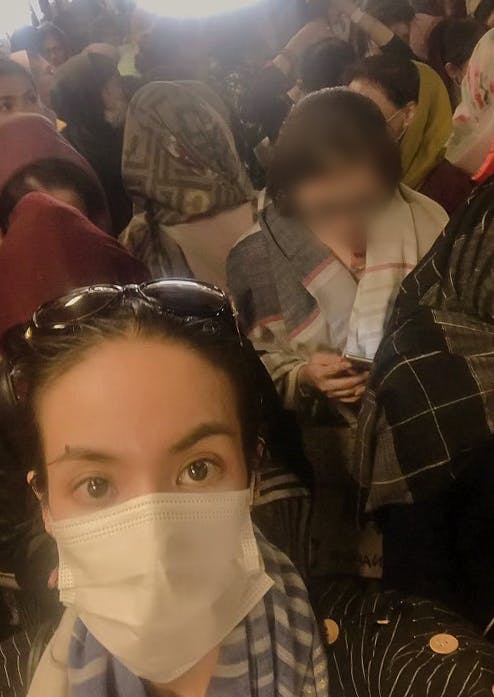
The women worried that they would be next.
When they reached their terminal, the women encountered a group of Taliban soldiers who attempted to intimidate them into retreating.
“Where are all you young women going all alone?” Raha recalled the soldiers shouting. “Forget about education, there is no education for you!”
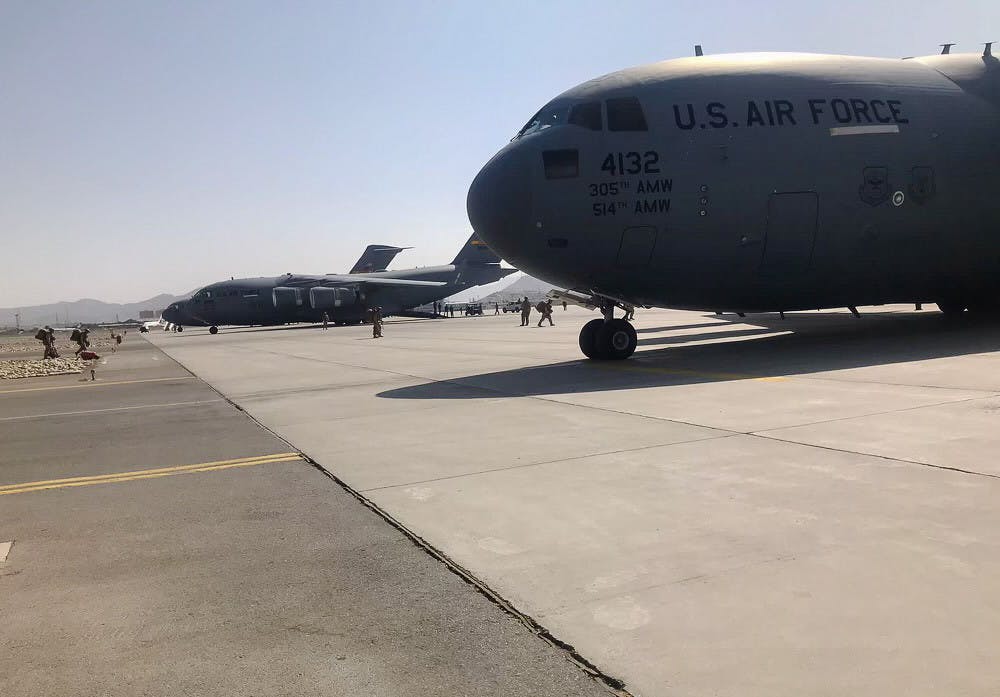
Their words still haunt Raha, giving her headaches every time she remembers the day’s events.
The women trembled with fear as each of their names was called and they handed their documents to the soldiers. They were ultimately allowed to depart with only their documents and mobile phones — leaving their handbags behind at the airport.
“When I look back on those days, I say to myself ‘I was so fearless, as were my friends,’ ” Fayeq said. “What if the buses exploded or (were) bombed from underneath?”
“I’m so thankful for our lives,” Fayeq added. “I feel like we are blessed.”
After the plane briefly made stops in four countries, the women were transported to Fort McCoy in Wisconsin for a long-term stay.
When she arrived in America, Raha recalled thinking to herself, “I will be someone now, someone who can bring change in society. Not only (to) Afghanistan but the world … Every day of life is a gift, so I am thankful.”
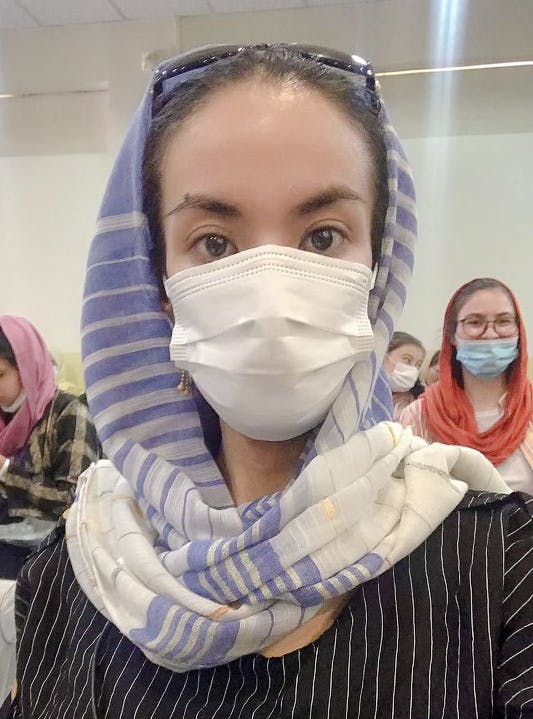
According to James Rowan, chief of staff to the Provost, it was during the students’ time at Fort McCoy that the New University in Exile Consortium requested member institutions to aid the women.
Brown had begun discussions of hosting displaced Afghan scholars and students Aug. 16. The University created an “adaptive application process,” according to Asabe Poloma, associate provost for global engagement.
Taking the students’ traumatic journeys and lack of academic documentation into consideration, the administration developed an accessible application and ultimately accepted 14 students. A fifteenth student from Herat, Afghanistan was later added to the cohort.
The fifteen women were allowed to begin their studies in the spring semester as non-degree-earning “special-students,” Poloma said. They will be able to reapply to Brown as full-time students later this year.
The Afghan students are currently in the U.S. with humanitarian parole status, which allows two years of residency. After those two years, they will be eligible to apply for refugee status, which will allow them to continue living and pursuing education in the U.S., The Herald previously reported.
Since their arrival in the U.S., Raha and Fayeq have begun the next chapter of their educational journeys at Brown, working to use their knowledge as a tool for good.
“We are given the opportunity to help. We want to make good use of it,” Fayeq said. “A lot of people helped us all around the world; therefore, I want to help people … no matter where they are, where they live, which ethnicity (or) which country.”
Fayeq hopes to explore political science and international affairs-related courses, while Raha is pursuing computer science, economics, international and public affairs and political science.
“For me, humanity is important (in order) to be a global leader,” Raha said. “I have met so many kind people … I only hope I can pay back all of this kindness.”
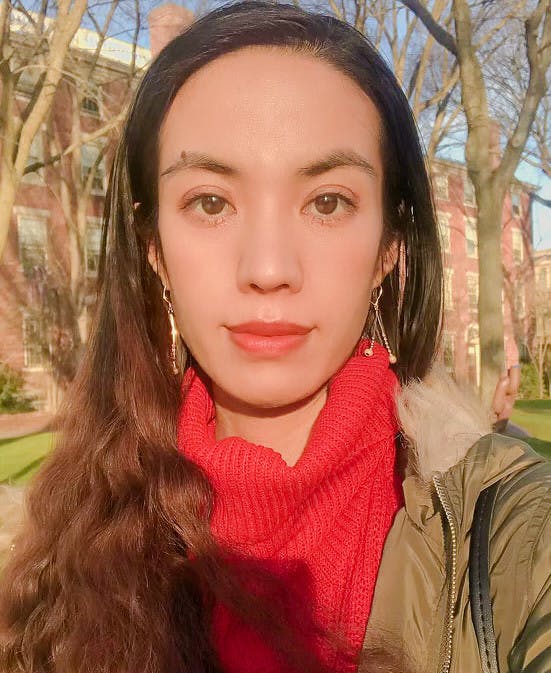
Raha and Fayeq also hope to pursue diverse extracurriculars, with Fayeq studying Turkish and Spanish and Raha exploring the Brown Outdoor Leadership Training program, Brown Debating Union and club basketball.
“I believe knowledge is not something that is learned from a book,” Raha said. “It also involves what is outside — learning and talking and communicating with people.”
Though both students are still working to overcome the language barrier and worry for the safety of their families in Afghanistan, they remain optimistic for their future.
Fayeq said, “I think we are going to improve a lot here.”

